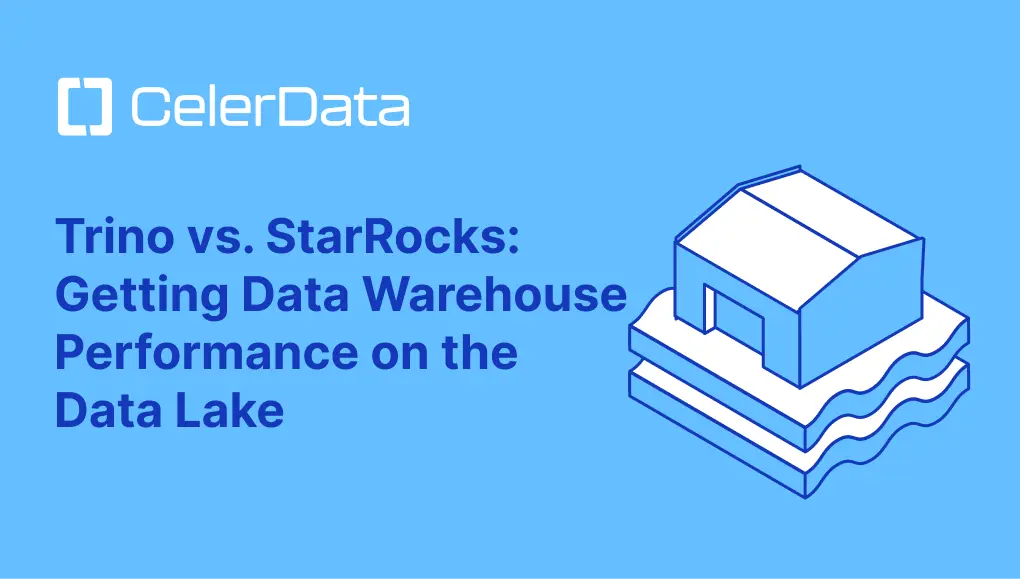
Health Insurance Portability and Accountability Act (HIPAA)

Join StarRocks Community on Slack
Connect on SlackWhat Is Health Insurance Portability and Accountability Act (HIPAA)
Historical Background
Origin and Enactment
The Health Insurance Portability and Accountability Act (HIPAA) became law in 1996. President Bill Clinton signed HIPAA into law. Congress aimed to address issues in the healthcare industry. The law focused on modernizing how private patient data is managed. HIPAA impacted how data is collected, stored, accessed, and shared. The act sought to protect sensitive health information.
Key Objectives
HIPAA has several key objectives. The law enhances the portability of health insurance coverage. Workers benefit when they change or lose jobs. HIPAA reduces the problem of job lock. The act aims to combat fraud and abuse in healthcare. National standards for electronic health information transactions are established. HIPAA ensures the confidentiality and integrity of health information.
Main Components
Title I: Health Care Access, Portability, and Renewability
Title I of HIPAA focuses on health care access. The title addresses portability and renewability of health insurance. Workers and their families receive protection. Health insurance coverage remains intact during job changes. Title I reduces barriers to obtaining health insurance. The title prevents discrimination based on health status. Health plans include health benefits for pre-existing conditions.
Title II: Preventing Health Care Fraud and Abuse
Title II targets healthcare fraud and abuse. The title establishes national standards for electronic health information. Healthcare providers must follow these standards. Title II includes the Privacy Rule. The rule governs the use and disclosure of protected health information (PHI). Patients gain rights over their health information. The Security Rule under Title II protects electronic PHI. Safeguards ensure the security of health data.
HIPAA Privacy Rule
Overview of HIPAA Privacy Rule
The HIPAA Privacy Rule plays a crucial role in safeguarding patient information. The rule establishes national standards for the protection of health information. The Health Insurance Portability and Accountability Act (HIPAA) mandates these standards to ensure privacy. The HIPAA Privacy Rule defines what constitutes Protected Health Information (PHI). PHI includes any information that can identify an individual, such as medical records or billing details. The rule applies to all forms of PHI, whether electronic, written, or oral.
Protected Health Information (PHI)
Protected Health Information refers to any data that relates to an individual's health status. This information includes medical histories, test results, and insurance information. PHI also encompasses demographic information that can identify a patient. The HIPAA Privacy Rule protects this information to maintain confidentiality. The rule ensures that only authorized individuals access PHI. Unauthorized disclosure of PHI can lead to severe penalties.
Patient Rights
Patients possess specific rights under the HIPAA Privacy Rule. These rights empower individuals to control their health information. Patients can request access to their medical records. Individuals have the right to request corrections to inaccurate health information. Patients can also decide how their information is shared. The rule requires healthcare providers to inform patients about their privacy practices. This transparency fosters trust between patients and healthcare providers.
Compliance Requirements
Compliance with the HIPAA Privacy Rule is mandatory for certain entities. These entities must adhere to strict guidelines to protect health information. Compliance ensures the security and confidentiality of PHI.
Covered Entities
A covered entity includes healthcare providers, health plans, and healthcare clearinghouses. These entities handle PHI regularly. The HIPAA Privacy Rule applies to these entities to ensure privacy. Covered entities must implement measures to safeguard PHI. These measures include training staff on privacy practices and securing electronic systems. Non-compliance can result in significant penalties.
Business Associates
Business associates also play a role in maintaining privacy. These associates include third-party vendors that handle PHI on behalf of covered entities. The HIPAA Privacy Rule requires business associates to comply with privacy standards. Business associates must sign agreements to protect PHI. These agreements outline the responsibilities of each party. Business associates must report any breaches of PHI to the covered entity. This accountability ensures the integrity of health information.
HIPAA Security Rule
The HIPAA Security Rule establishes measures to protect electronic health information. The rule focuses on three main safeguards: administrative, physical, and technical. Each safeguard plays a crucial role in ensuring the security of health data.
Overview of Security Rule
The HIPAA Security Rule requires healthcare entities to implement specific measures. These measures protect electronic protected health information (ePHI). Compliance with the rule helps prevent unauthorized access to health data. Healthcare providers must follow these standards to maintain patient trust.
Administrative Safeguards
Administrative safeguards involve policies and procedures. These measures manage the selection and use of security controls. Healthcare entities must conduct risk assessments. Risk assessments identify potential threats to ePHI. Training programs educate staff on security practices. Staff must understand their responsibilities in protecting health information. Regular evaluations ensure the effectiveness of security measures.
Physical Safeguards
Physical safeguards protect the physical environment. These measures control access to facilities where ePHI is stored. Healthcare providers must limit access to authorized personnel. Security measures include locks, surveillance systems, and secure workstations. Proper disposal of electronic devices prevents unauthorized access to health data. Physical safeguards ensure that health information remains secure.
Technical Safeguards
Technical safeguards focus on technology used to protect ePHI. Access controls restrict who can view or modify health information. Encryption secures data during transmission. Audit controls monitor access to health data. These controls detect unauthorized access attempts. Technical safeguards ensure the confidentiality and integrity of health information.
Healthcare entities must comply with the HIPAA Security Rule. Non-compliance can result in significant penalties. The Office for Civil Rights (OCR) enforces these regulations. In one case, a hospital paid $2.175 million for failing to notify the Department of Health and Human Services of a breach. Compliance with the rule protects both patients and healthcare providers.
HIPAA Omnibus Rule and Its Implications
The HIPAA Omnibus Rule marked a significant shift in healthcare privacy regulations. The rule introduced several key changes that affected how entities handle health information. Understanding these changes is crucial for compliance with HIPAA standards.
Key Changes Introduced
The HIPAA Omnibus Rule modifies existing regulations to enhance the protection of health information. The rule strengthens patient privacy rights and expands the responsibilities of covered entities and business associates. The changes ensure that health information remains secure in an evolving digital landscape.
Impact on Covered Entities
Covered entities include healthcare providers, health plans, and healthcare clearinghouses. The HIPAA Omnibus Rule requires these entities to update their privacy practices. Covered entities must revise their privacy policies to reflect the new regulations. Training programs must educate staff on the updated requirements. Covered entities face increased penalties for non-compliance. The rule emphasizes the importance of safeguarding health information.
Impact on Business Associates
Business associates play a crucial role in handling health information. The HIPAA Omnibus Rule extends the compliance obligations to these associates. Business associates must sign agreements that outline their responsibilities. These agreements ensure that business associates protect health information. The rule holds business associates accountable for breaches. Business associates must report any incidents to the covered entity. This accountability reinforces the security of health information.
HIPAA Enforcement and Penalties
Enforcement Agencies
The enforcement of HIPAA regulations involves two primary agencies. These agencies ensure compliance with the standards set for protecting health information.
Office for Civil Rights (OCR)
The Office for Civil Rights (OCR) plays a crucial role in enforcing HIPAA regulations. OCR investigates complaints related to privacy breaches. The agency conducts audits to assess compliance with HIPAA standards. OCR has secured significant settlements for violations. For example, OCR imposed a $1.6 million civil money penalty against the Texas Health and Human Services Commission for HIPAA violations. Another case involved a $2.15 million penalty against Jackson Health System. These actions highlight OCR's commitment to upholding patient privacy rights.
Department of Justice (DOJ)
The Department of Justice (DOJ) also enforces HIPAA regulations. DOJ handles criminal cases involving HIPAA violations. The department prosecutes individuals and entities that knowingly misuse health information. DOJ collaborates with OCR to ensure comprehensive enforcement. This partnership strengthens the protection of health information across the healthcare industry.
HIPAA Privacy Rule Penalties
Penalties for violating the HIPAA Privacy Rule can be severe. These penalties serve as a deterrent against non-compliance. Healthcare entities must adhere to the standards to avoid financial and legal consequences.
Civil Penalties
Civil penalties apply to entities that fail to comply with HIPAA standards. The penalties vary based on the nature and extent of the violation. OCR has imposed civil penalties in numerous cases. For instance, a hospital paid $2.175 million for failing to notify the Department of Health and Human Services of a breach. Another case involved a $750,000 settlement emphasizing the need for organization-wide risk analysis. These penalties underscore the importance of maintaining compliance with HIPAA regulations.
Criminal Penalties
Criminal penalties target individuals who intentionally misuse health information. The DOJ prosecutes these cases to uphold the integrity of health data. Criminal penalties may include fines and imprisonment. The severity of the penalties depends on the nature of the offense. Healthcare professionals must understand the legal implications of violating HIPAA standards. Compliance with HIPAA ensures the protection of sensitive health information and maintains trust within the healthcare system.
Impact of HIPAA on Healthcare Entities
Hospitals and Clinics
Compliance Challenges
Hospitals and clinics face significant challenges in achieving HIPAA compliance. Evolving technologies introduce new cyber threats. These threats require constant updates to security measures. Healthcare facilities must invest in advanced systems. These systems protect sensitive health information from breaches. Compliance requires ongoing staff training. Employees must understand the importance of safeguarding patient data. Regular audits ensure adherence to HIPAA standards.
Best Practices
Hospitals and clinics can adopt best practices to maintain HIPAA compliance. Implementing robust security protocols is essential. Facilities should use encryption to protect electronic health records. Access controls limit data exposure to authorized personnel. Regular risk assessments identify potential vulnerabilities. Staff education programs enhance awareness of privacy practices. Facilities must document all compliance efforts. Documentation provides evidence during audits or investigations.
Health Insurance Companies
Data Management
Health insurance companies handle vast amounts of health information. Effective data management is crucial for HIPAA compliance. Companies must implement secure data storage solutions. Encryption protects data during transmission. Access controls restrict data access to authorized users. Regular audits assess data management practices. Companies must update systems to address emerging threats. Compliance ensures the confidentiality and integrity of health information.
Privacy Concerns
Privacy concerns are paramount for health insurance companies. The HIPAA Privacy Rule mandates strict guidelines for handling health information. Companies must inform policyholders about privacy practices. Transparency builds trust between insurers and clients. Companies must respond promptly to privacy breaches. Reporting breaches to the Office for Civil Rights is mandatory. Non-compliance can result in severe Privacy Rule penalties.
Conclusion
HIPAA plays a crucial role in safeguarding patient information. The HIPAA Privacy Rule ensures the confidentiality of health data. Healthcare providers must adhere to HIPAA Privacy standards. Patients gain control over their health information through HIPAA Privacy regulations. Health information remains secure with HIPAA Privacy measures. Compliance with HIPAA Privacy rules protects sensitive health data. The evolving landscape of healthcare privacy requires vigilance. Healthcare entities must adapt to new privacy challenges. Continuous education on HIPAA Privacy is essential. The protection of health information remains a top priority.



.jpg)